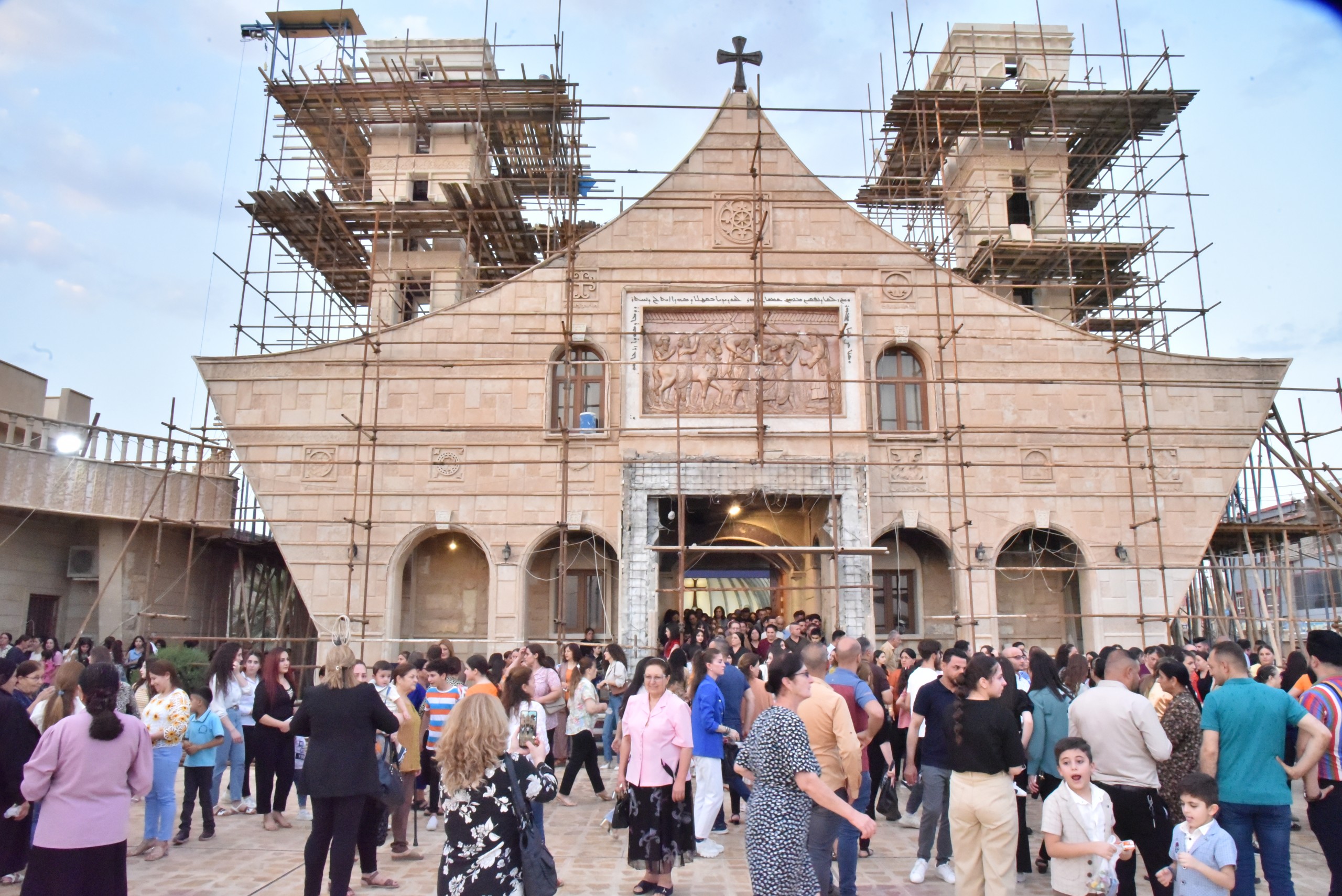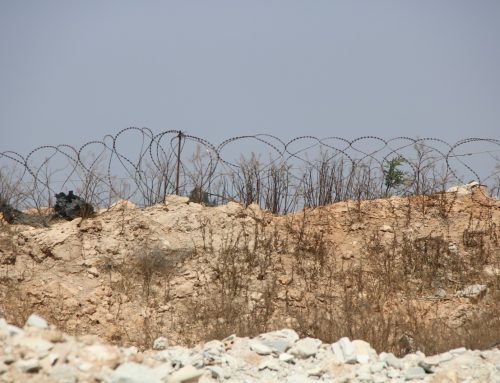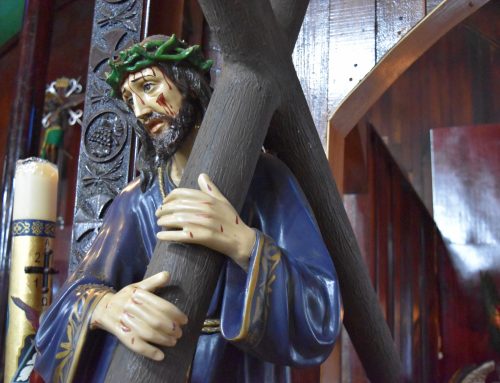With a long experience of persecution, the Christians of Baghdeda (Qaraqosh) know that the bad times might return, but they believe that “a Church that is not persecuted is a Church that does not carry Christ”.
It is a beautiful day in Baghdeda, and families are streaming into the church of St. Behnam and Sarah. The interior of the church is pristine and the pews are full of people who have come to attend a Syriac Catholic liturgy.
The surrounding tranquillity makes it difficult to imagine that only eight years agoBaghdeda, or Qaraqosh, as it is known in Arabic, was fully occupied by Islamic State terrorists who destroyed ancient and priceless Christian heritage and burned and gutted St. Behnam’s.
“The first time I visited the city, four days after its liberation, in 2016, we saw absolute devastation, the church burned, the bell tower knocked over. My feeling was of great sadness. This parish was very active before ISIS. However, the church still stands, we were able to restore it”, says Father George Jahola, a native of Baghdeda, as he points to some of the signs of destruction that are still visible, such as the felled bell tower.
Over the past years the Church has been undergoing restoration. The interior was recently completed, and now, with the financial help of Aid to the Church in Need (ACN), work has finally begun on the exterior as well.
However, the people of Qaraqosh did not wait for the restoration to begin praying in this church as they returned from exile in Kurdistan. “The community was thrilled to be able to return to pray in this parish. We wanted to strengthen and encourage this faith, and explain that the Church is more than buildings, it is the souls of the people who live in the parish. After two years we decided it was time to restore the church, to give the people hope”, says Father George.
A symbol and a witness
Hope is necessary, even now after the liberation of the city, when many are still tempted to seek out safer lands in the west. “The restoration of this church is a symbol of resistance, to remain in this land, to bear witness. Pope Francis visited us just over a year ago, and he asked us to bear witness in this land”, recalls the priest.
Local parish priest Father Boutros Sheeto confirms that the restoration of the church has become a visible sign of the larger struggle to keep the Christian faith alive in Iraq. “Having the church restored gives the community psychological and moral strength. Without this reconstructionmany families today would be thinking about emigrating.”
The fact that many Christians decided to remain does not mean they do not fear the return of persecution. Rather, many see it as part of their faith. “Since its inception to this day, the Church has been persecuted. A Church that is not persecuted is a Church that does not carry Christ, because Jesus was crucified and suffered during his life and his mission. If Jesus suffered, died, was buried and rose, we have to suffer with Jesus and suffer with the Church so that we can live the Resurrection and be witnesses to the gospel of joy and hope in the world”, adds Father Boutros.
Rebuilding lives
This day, however – as ancient Syriac hymns ring out once more in the beautifully restored church of St. Benham and St. Sarah, and volunteers hand out food and drinks to parishioners as they come outside to socialise – is one of celebration and gratitude, to God, and to those who made the restoration possible.
“We thank Aid to the Church in Need for its efforts to rebuild the church. We thank it with all our heart, and all benefactors for their support”, says Semoon Beto Shabo, the church’s caretaker.
ACN has been very active in assisting in the restoration of Christian heritage and infrastructure in Iraq, especially since the terrible persecutions at the hands of ISIS, which forced hundreds of thousands to flee to Kurdistan. After focusing on the rebuilding of houses in Christian towns and villages, the Catholic charity has been aiding in the restoration and construction of schools, churches and other crucial institutions to help maintain a Christian presence in the region.





